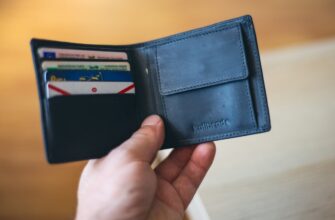🚀 Claim Your $RESOLV Airdrop Now!
💰 Big Profits. Massive Gains.
🎉 Join the $RESOLV Airdrop and step into the future of crypto!
⏳ You have 1 month to claim your tokens after registration.
🤑 This could be your path to financial freedom — don’t miss out!
🌟 Early users get exclusive access to the $RESOLV drop!
🔥 No cost to claim — only pure opportunity.
💼 Be among the first and watch your wallet grow!
- Why Crypto Wallet Security Can’t Be Ignored
- Choose the Right Wallet Type
- Fortify Access Controls
- Update Software Religiously
- Recognize & Avoid Phishing Traps
- Implement Multi-Signature Protection
- Secure Your Recovery Phrase Like Gold
- Lock Down Networks & Devices
- Monitor Transactions Proactively
- FAQ: Crypto Wallet Security Essentials
Why Crypto Wallet Security Can’t Be Ignored
With cryptocurrency thefts exceeding $3.8 billion in 2022 alone, securing your digital assets is non-negotiable. Unlike traditional banks, crypto transactions are irreversible—once hackers drain your wallet, recovery is nearly impossible. This guide delivers actionable strategies to fortify your wallet against evolving cyber threats, combining fundamental practices with advanced protections.
Choose the Right Wallet Type
Your first line of defense starts with wallet selection. Not all storage solutions offer equal security:
- Hardware Wallets (Cold Storage): Devices like Ledger or Trezor keep keys offline. Ideal for long-term holdings.
- Software Wallets (Hot Wallets): Mobile/desktop apps (e.g., Exodus). Convenient but online, making them more vulnerable.
- Paper Wallets: Physical printouts of keys. Secure if generated offline and stored safely—but easily damaged or lost.
Tip: Use a hardware wallet for bulk assets and a software wallet only for small, frequent transactions.
Fortify Access Controls
Weak authentication invites breaches. Strengthen entry points:
- Create 14+ character passwords mixing uppercase, symbols, and numbers
- Enable Two-Factor Authentication (2FA) via authenticator apps like Google Authenticator—never SMS
- Use biometric locks (fingerprint/face ID) on mobile wallets
Update Software Religiously
Outdated software contains exploitable flaws. Hackers target known vulnerabilities in:
- Wallet applications
- Device operating systems (iOS/Android/Windows)
- Browser extensions
Enable auto-updates and patch within 48 hours of critical releases.
Recognize & Avoid Phishing Traps
Phishing causes 90%+ of crypto thefts. Red flags include:
- “Urgent” emails demanding wallet verification
- Fake wallet login pages mimicking legitimate sites
- Social media giveaways requiring seed phrase entry
Defense tactic: Always manually type wallet URLs—never click links.
Implement Multi-Signature Protection
Multi-sig requires 2-3 approvals for transactions. Even if hackers compromise one key, they can’t move funds. Supported by wallets like Electrum and Casa:
- Set up multiple trusted devices/keys
- Configure required signatures (e.g., 2-of-3)
- Distribute keys geographically
Secure Your Recovery Phrase Like Gold
Your 12-24 word seed phrase is a master key. Protect it with:
- Offline Storage: Engrave on metal plates or use cryptosteel—never digital photos/cloud
- Geographic Separation: Split phrase fragments across secure locations
- Zero Sharing: Legitimate services never ask for your phrase
Lock Down Networks & Devices
Compromised environments expose wallets:
- Never access wallets via public Wi-Fi—use VPNs with AES-256 encryption
- Install antivirus software (e.g., Malwarebytes) and firewalls
- Dedicate one device exclusively for crypto transactions
Monitor Transactions Proactively
Early detection limits damage:
- Set up wallet alerts for outgoing transfers
- Review transaction histories weekly
- Use blockchain explorers like Etherscan to track addresses
FAQ: Crypto Wallet Security Essentials
Q: Can a hardware wallet be hacked?
A: While highly secure, physical tampering or supply-chain attacks are possible. Always buy directly from manufacturers.
Q: Should I store all crypto on exchanges?
A: No. Exchanges are prime hacking targets—”Not your keys, not your crypto.” Use them only for trading.
Q: How often should I change passwords?
A: Every 3-6 months, or immediately after any security incident. Use a password manager like Bitwarden.
Q: Are biometric logins safe?
A: Yes, as secondary protection—but always combine with strong passwords. Biometrics alone can be bypassed.
Final Tip: Treat wallet security as an ongoing process. As hacker tactics evolve, so must your defenses. Start implementing these steps today to transform your wallet from a target into a fortress.
🚀 Claim Your $RESOLV Airdrop Now!
💰 Big Profits. Massive Gains.
🎉 Join the $RESOLV Airdrop and step into the future of crypto!
⏳ You have 1 month to claim your tokens after registration.
🤑 This could be your path to financial freedom — don’t miss out!
🌟 Early users get exclusive access to the $RESOLV drop!
🔥 No cost to claim — only pure opportunity.
💼 Be among the first and watch your wallet grow!








